The most popular desktop gaming clients, ranked
Is Steam really the best you can do on PC? Maybe, but there are decent alternatives.

Before Valve required Half-Life 2 players to download an annoying client called “Steam” in order to play its now classic FPS, PC had no neat-and-tidy desktop application for purchasing, sorting and accessing games software. Since then, Steam has become so ubiquitous that it basically is PC gaming in the eyes of many. Of course, it isn’t. There are many alternatives, and given Steam’s astonishing growth and confusing approach to curation, plenty are wondering whether there are any viable alternatives.
While nothing comes close to Steam’s catalogue size, there are viable alternatives: especially if you’re after a more focused, curated storefront. But then, there’s UPlay. How about the Windows Store? We’ve listed the major clients available on PC below, in order of preference.
1. Steam
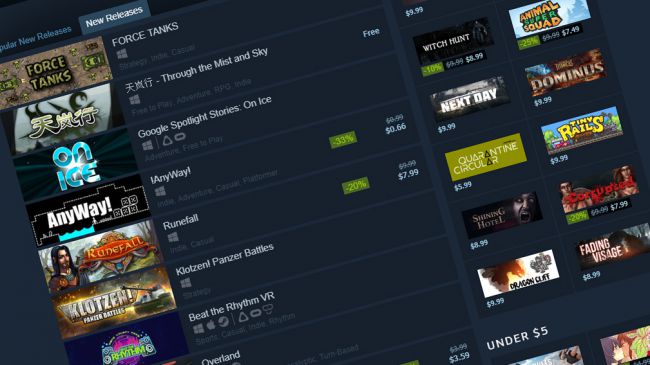
You might have heard of Steam. It’s come a long way since Counter-Strike version 1.4 released exclusively on the platform in 2003. It’s evolved from a Valve shopfront into a clearing house for upwards of 100 games per week. It’s fully-featured and growing, and if you game on PC, you’ve almost certainly got it installed.
The sheer breadth of its digital inventory makes installing the client a no-brainer. While many major publishers like Activision, Electronic Arts and Bethesda have moved, or are moving, away from Steam in favor of their own clients, it still boasts an astonishingly massive and diverse range of games, whether you’re into shooters, visual novels, anime sex games or meditative exploration games. Valve’s also making inroads into streaming, and it’s recently launched its own answer to the hugely popular Discord voice chat application. There’s very little you can’t do on Steam. So what are the setbacks?
Curation is one of them. Steam, for all of Valve’s talk, still hosts a lot of questionable games, whether offensive or just downright low effort (Unity asset flips still pop up from time to time). There’s a good argument to be made that Steam’s nigh ‘everything goes’ approach is noble, since it’s good to make space in the world for material we might not strictly categorize as “good” or even “a game”. Add to that, Steam’s algorithmic recommendations, and chances are you won’t see bad stuff anyway. Still: algorithms aren’t useful if you want to expand outside your comfort zone, and at the moment, GOG Galaxy and itch.io arguably offer a better browsing experience for that purpose.
Steam isn’t a necessary evil per se: it’s massive and chock-a-block full of games. What more could you want? Maybe a more focused experience. If so, read on.
2. GOG Galaxy
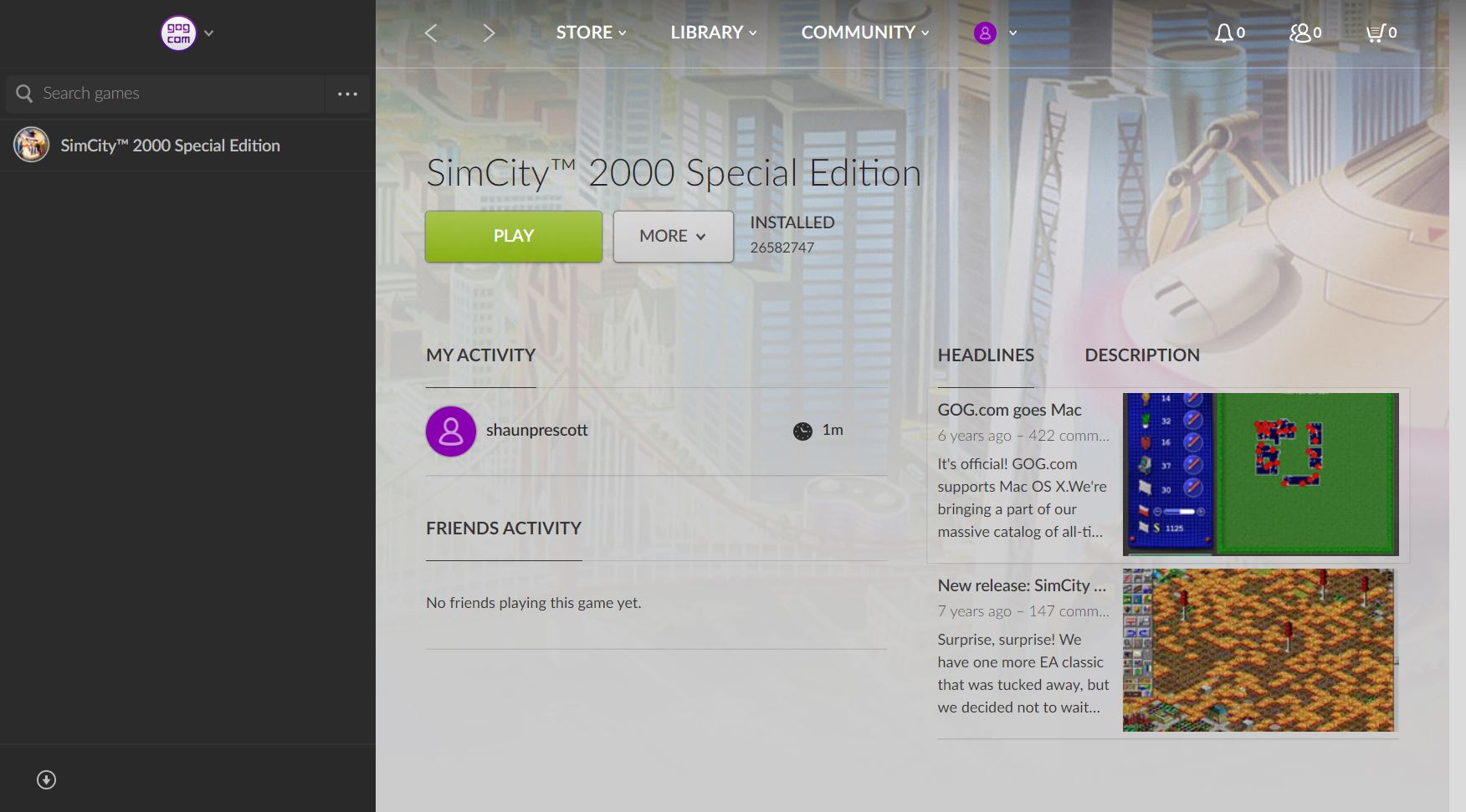
Good Old Games was originally conceived as a storefront for DRM-free retro PC games, the type that you’d once have had trouble buying, let alone running. Since a lot of these games required DOS emulator DOSBox to run, each purchase would come bundled with that free software. GOG Galaxy is especially great if you’re into running these older games: if you own Simcity 2000 and open it from the client, it’ll automatically boot DOSBox and the game seamlessly.
The biggest gaming news, reviews and hardware deals
Keep up to date with the most important stories and the best deals, as picked by the PC Gamer team.
Of course, GOG is no longer exclusively about retro games: the storefront has a huge selection of modern indie games, not to mention CD Projekt’s catalogue (they own GOG, didn’t you know). There are fewer games from blockbuster publishers -- so don’t expect anything modern by EA, Ubisoft etc -- but GOG is famously a stickler for curation, as a recent report about a Zachtronics game initially not making the cut demonstrated. Meanwhile, an initiative called GOG Connect aims to help you transition your Steam library to GOG, assuming you prefer the Galaxy browser. This is limited to a tiny handful of games at present, and it’s hard to say whether the project will gain traction.
Whatever the case, it’s clear GOG has aspirations for its client, and it’s definitely a less fussy and complicated affair than Steam. The lack of heavy-handed algorithmic personalisation, combined with GOG’s internal curation, means you’re hardly going to encounter something as dire as a Unity asset flip on the front page of its store. If you’re into indies, old games and… The Witcher 3, it’s feasible that you can start your library here, rather than on Steam.
What about GOG Galaxy 2.0?
The closed beta for GOG Galaxy's next evolution is gathering attention for its promise to 'unite all launchers' in the embrace of a gentler, more versatile launcher. GOG Galaxy 2.0 won't get rid of other launchers entirely, but its library management tools and integrations collates every game from every library and allows you to mess with any sort of metadata, images, and tags you like. You can even launch games from other launchers within GOG Galaxy 2.0. Features that close launchers once an associated game closes are on the way too. Cross-platform chat and friend functionality have been promised as well. Toss in all the open source extensions the community makes, and GOG Galaxy 2.0 could very well top this list some day. We'll just need to see all those big ideas come to fruition.
3. Xbox (beta)
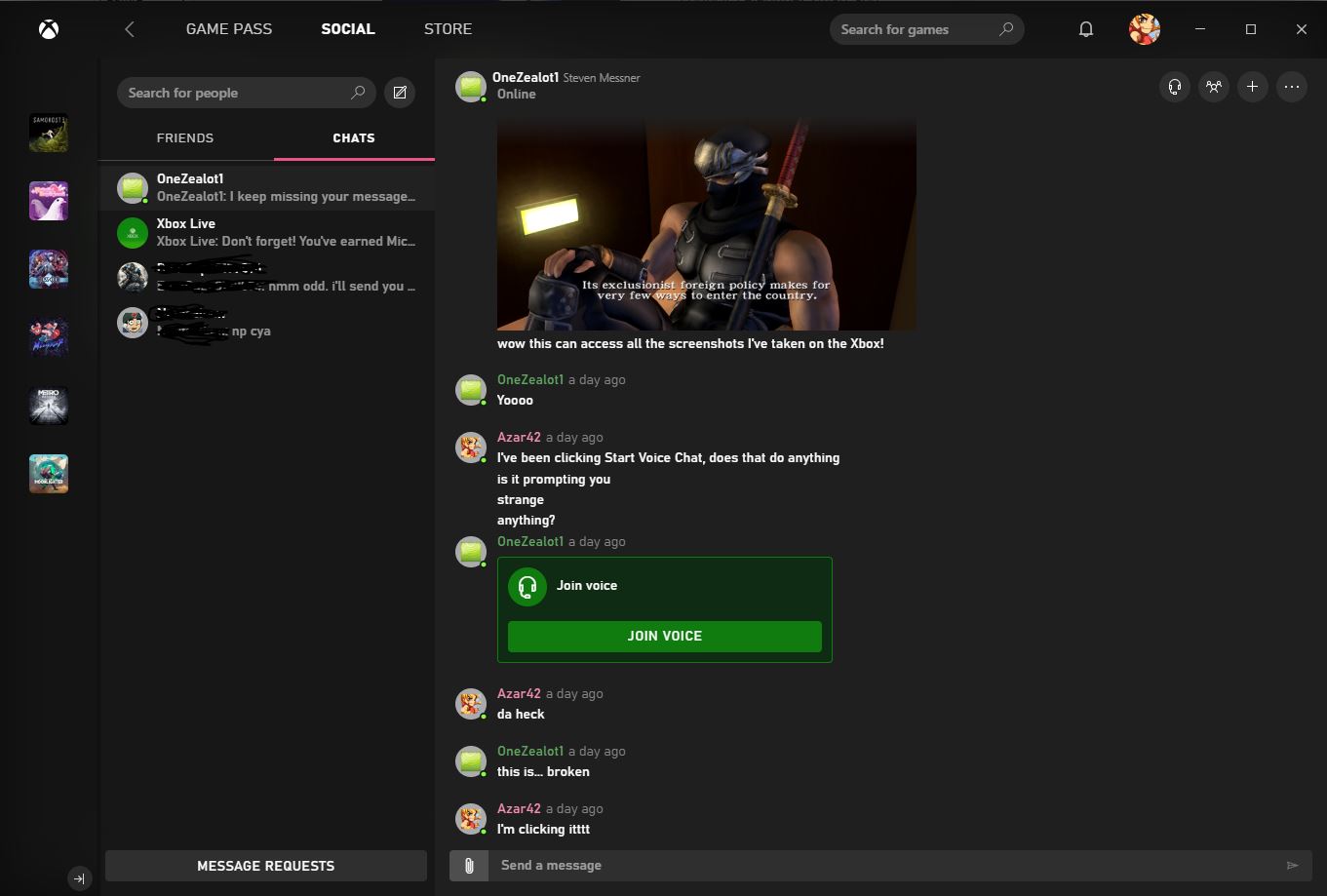
Microsoft rolled out the beta version of this Xbox launcher alongside the launch of Xbox Game Pass for PC. As a result, booting the app takes you straight into the current Game Pass library, which at this point is pretty decent. But the app is also a store and launcher, meaning it’s useful if you want to buy games outright and never touch the subscription service.
First thing’s first: it’s no Steam. The library isn’t as big and the functionality isn’t great, though is compares favourably to the Epic Games Store launcher. The social aspect has text and voice chat, providing access to any friends you have using a Microsoft account (which is one and the same with your Xbox Live account, nowadays), but it’s definitely no replacement for Discord.
It’s heads and shoulders above the Microsoft Store, obviously, which by the way is still a going concern if you fetishise lousy software. But the Xbox app is definitely a satisfactory experience, with a decent library, a bargain subscription service, and a sleek interface.
4. Epic Games Store
Who could have thought a mere game launcher could be so contentious? Well, it doesn’t help that Epic Games started snagging exclusives before its launcher had virtually any useful functionality to speak of: it didn’t even have a search function at launch. It has a very long way to go before it can rival Steam, but whether you like it or not, the Epic Games Store is here to stay and it has improved a fair bit over the months. Still to come are achievements, cloud saves and much more, but as of July 2019 it’s still pretty barebones and, frankly, not a great deal of fun to use.
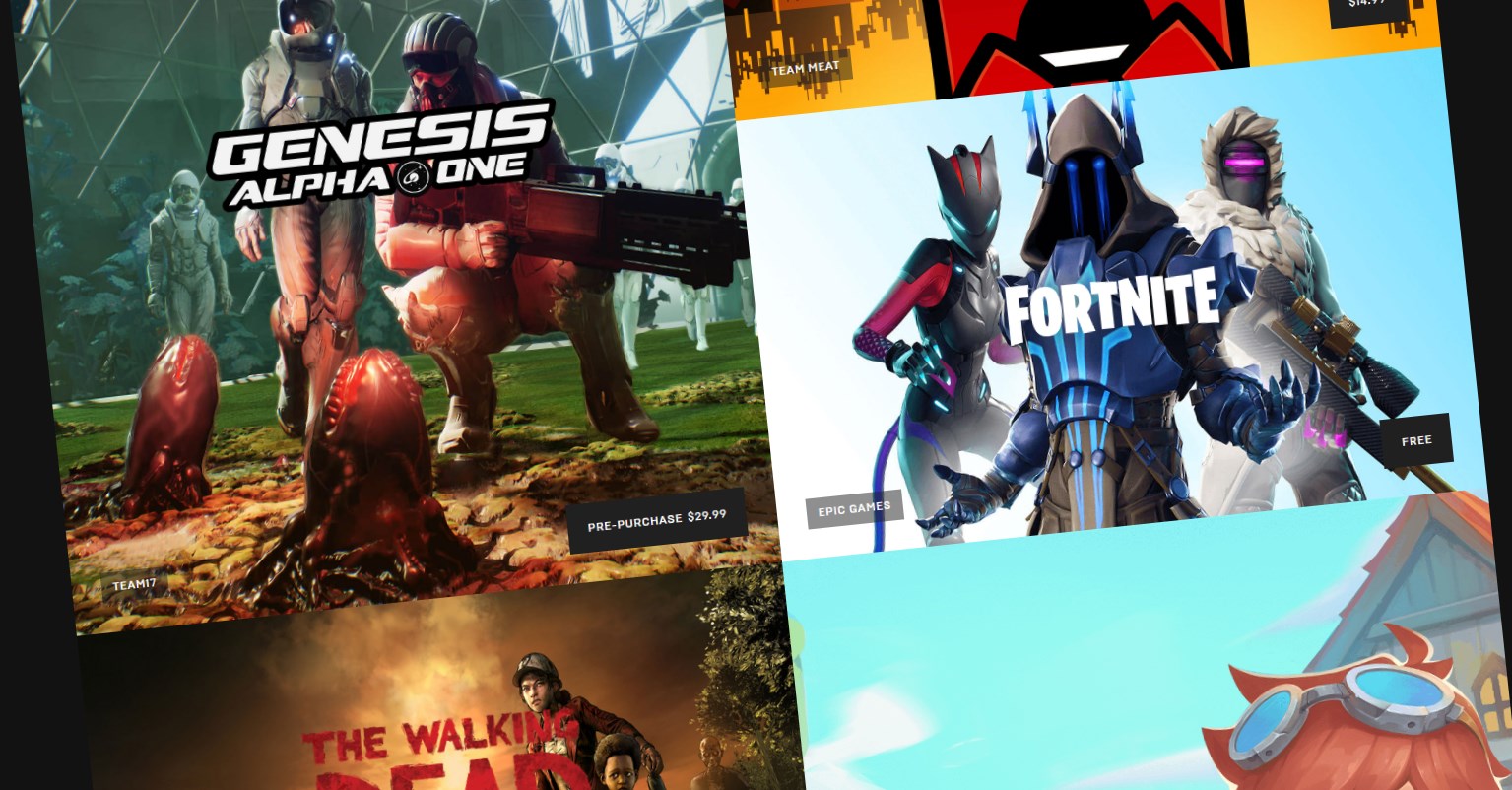
Again, it’s a work in progress. The store itself is a real pain to use, since it doesn’t have any filter options, nor any genre silos. Worse still, pre-orders tend to sit at the top of the list, eliminating any desire you might have to browse for games to play now. If browsing and discovering is what you want to do, Epic Games Store just isn’t good for it. There is a search function now, at least. The owned library is simply, elegantly presented as a simple alphabetical list of games, but again, some filters are much needed. As for its social networking functions… well, you can add friends and text chat with them. That’s it.
Of course, if you want to play certain exclusives like The Outer Worlds or Borderlands 3 at launch, you’ll need to get the launcher regardless of whether you want it or not. That’s the rub, for folk vehemently against the Epic Games Store. It’ll almost certainly improve, though.’
5. Itch.io
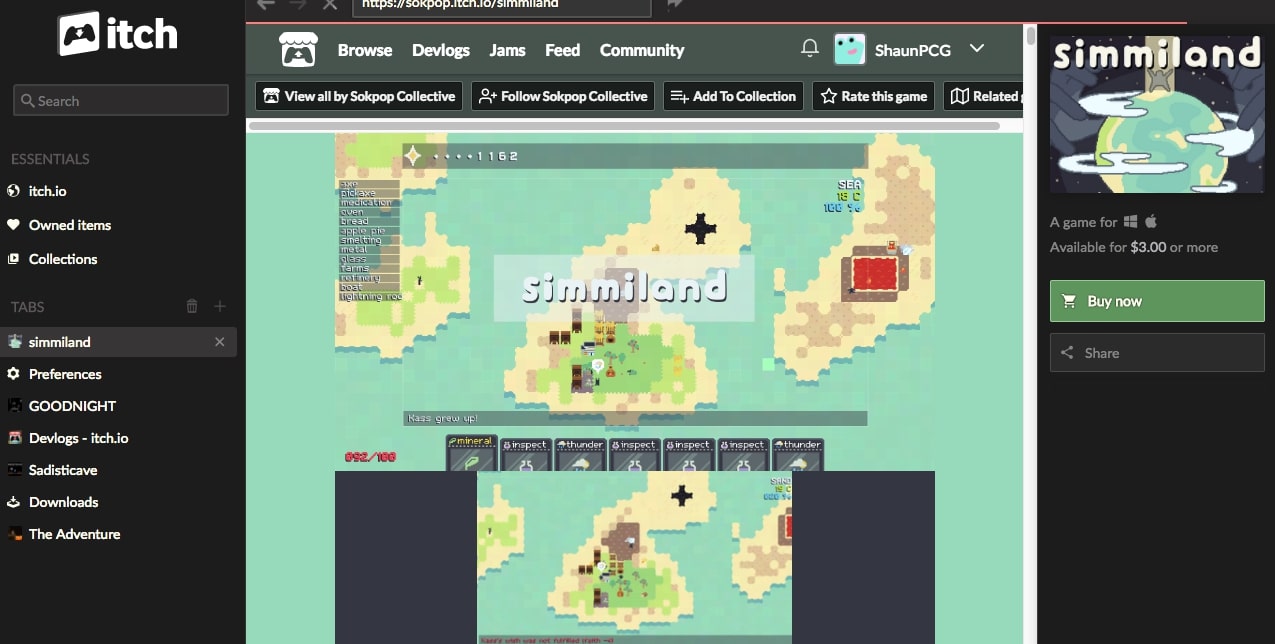
This is a desktop client for the popular indie game storefront Itch.io. It’s useful for the way it manages and organises your installs: downloading games from the itch.io website usually results in a mess of various executables and zip files in your downloads folder. Use the client, and you can download and uninstall any title without needing to worry where the files actually end up. It’s hardly a feature per se, but it’s uniquely useful for a storefront that specialises in tiny games with tinier storage footprints. Apart from that, all the features you’d expect are here: searching by popular tags, browsing within price brackets, and access to a decently populated itch.io discussion community. If you play a lot of games from itch.io it’s a no-brainer to get the client, and if you’ve yet to sample the bite-sized gaming morsels the storefront specialises in, now’s the time to check it out. Overall, a functional client for a unique storefront.
6. Origin
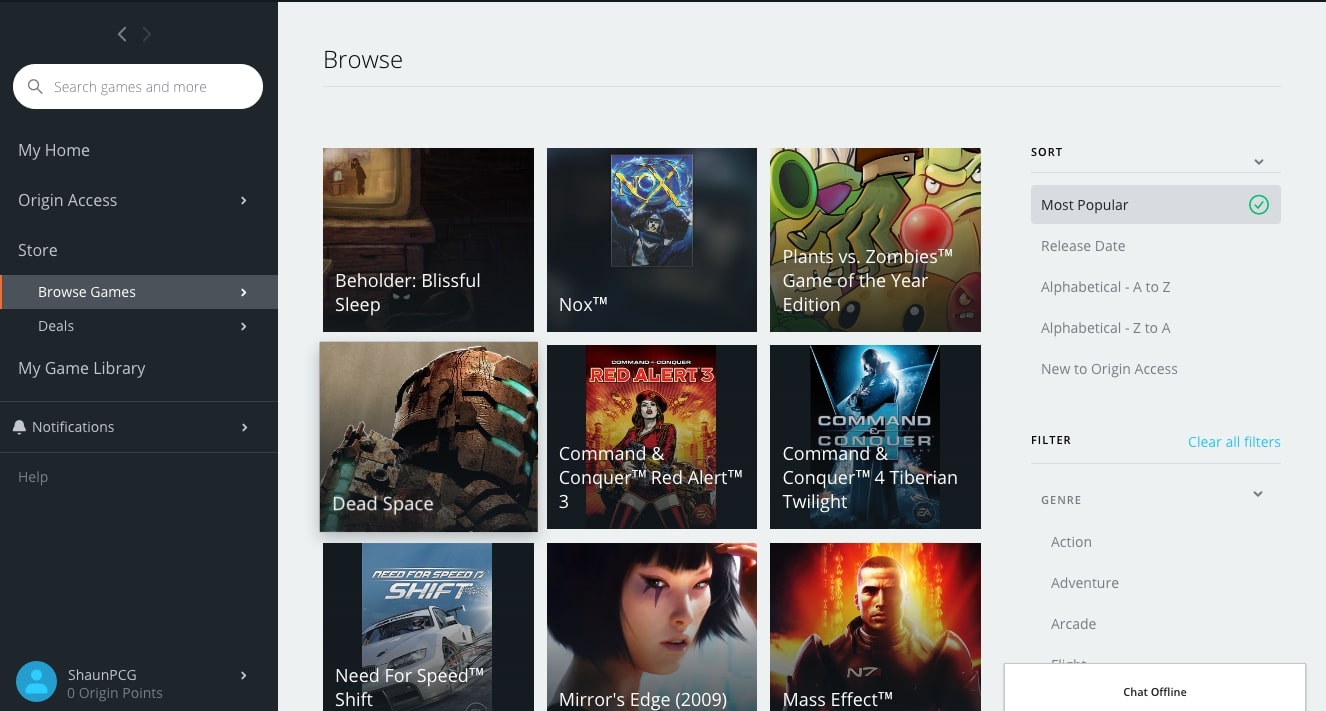
This is Electronic Arts’ dedicated client: you’ll need to have it installed if you want to play a modern EA game. In its favour, it’s a more feature-rich enterprise compared to similar clients from Bethesda and Ubisoft. For starters, Origin has a storefront boasting an impressive list of games that aren’t published by EA, from big names like CD Projekt, Ubisoft and Capcom, through to smaller indie publishers like Playdead and Kalypso (that said, EA games are hugely foregrounded). Origin also supports Origin Access, EA’s subscription service which offers up a ton of games for a monthly fee. The bulk of these games (upwards of 100) are EA games, though also include titles like Batman: Arkham Origins, Cities Skylines, The Witness, and more. You also get access to new EA games like Battlefield V before everyone else.
Whether you believe Origin Access is good value, or not, will determine the value of the Origin client. It’s serviceable, and the storefront isn’t bad, but it can barely hope to reach the inventory size of something like Steam. Perhaps, if you’ve only interest in big name indies and triple A games and want something with quality control, that won’t matter to you.
7. Battle.net
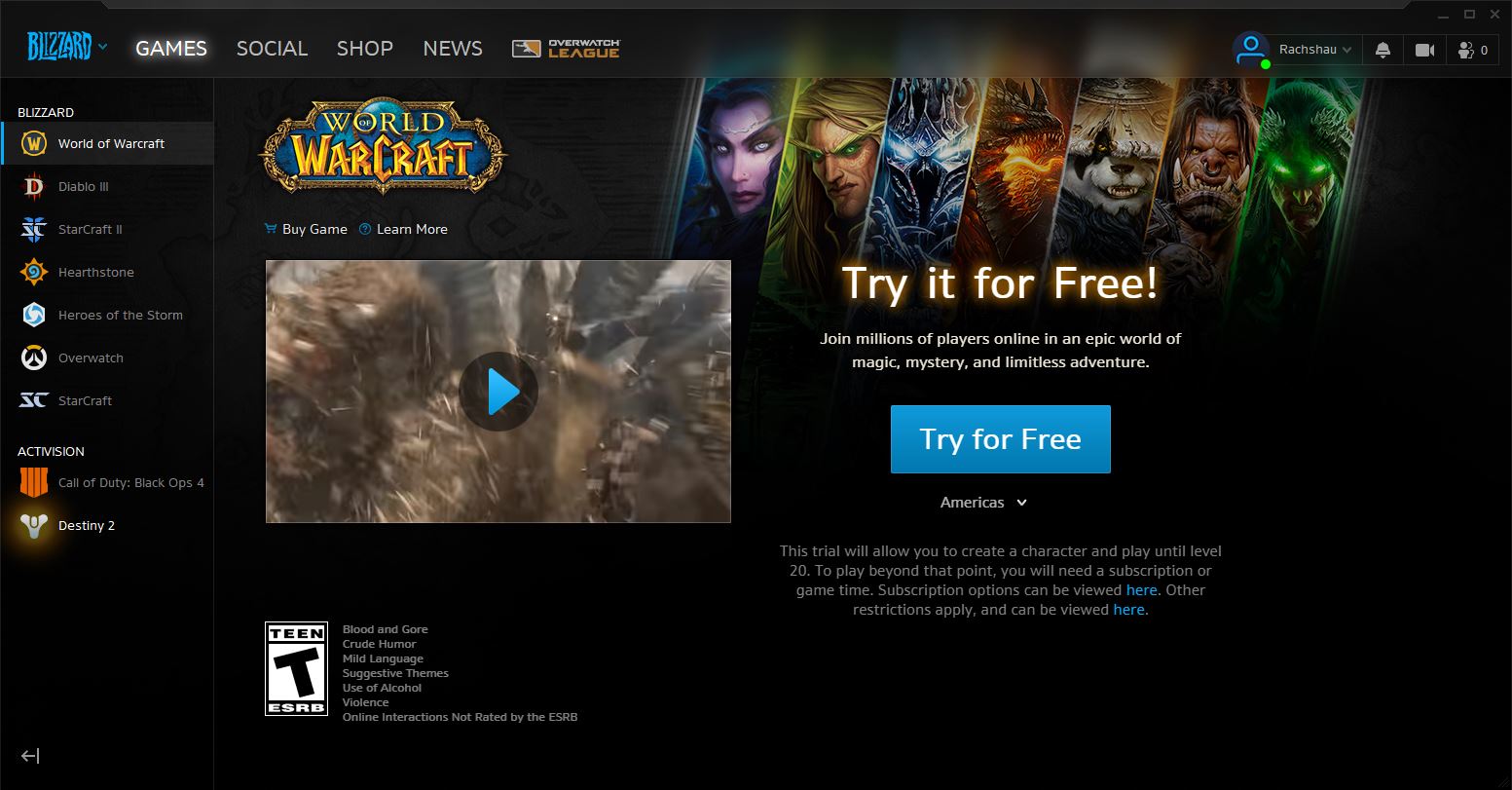
Since the release of Destiny 2, Blizzard’s Battle.net client has expanded to include Activision’s recent stable of online games: Destiny 2 (until September, at least) and Call of Duty: Black Ops 4. When it comes to assessing the quality of Battle.net, the first and most obvious question is: do you want to play a Blizzard game? If the answer is “yes” then tough luck -- whether you like it or not, you’re gonna need Battle.net.
As for the experience itself, it’s fine. It’s lightweight enough that if you’re only keen to play Hearthstone, it’s not going to get in the way with long boot up times and persistent interruptions. It’s possible to stream straight to Facebook from the client, and all the in-client streaming options are geared towards pushing you in that direction. It’s a decent place to stream Blizzard-centric esports too, for example the Overwatch League. It’s a tidy and functional client and, if you disagree, a necessary evil anyway.
8. UPlay
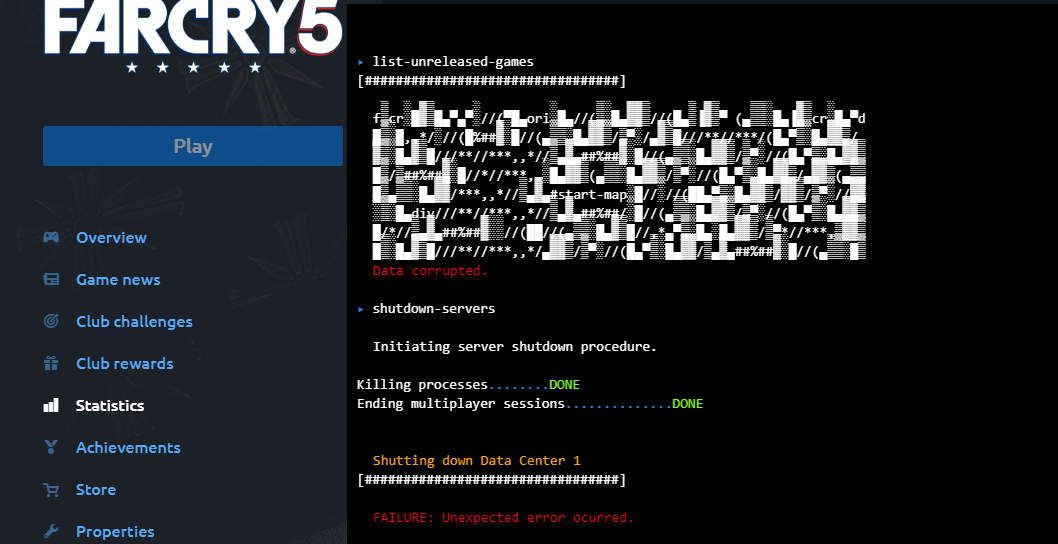
UPlay is good for one thing: playing Ubisoft games. It’s actually not good for a single other thing. Occasionally Ubisoft will offer a free game to UPlay account holders, and occasionally the publisher will run decent sales on Ubisoft titles. But overall you’re not really going to install UPlay unless you want to play a Ubisoft game. UPlay is widely mocked, and it’s easy to see why. If you buy a Ubisoft game on Steam, it’ll launch Uplay and then launch into the game itself. It’s not a gamebreaker, it’s just damn annoying. Unless you love earning Uplay points, for some reason, UPlay is just a boring fact of life if you want to play a Ubisoft game. A shame Siege and Assassin's Creed: Odyssey are as good as they are.
9. Bethesda Launcher
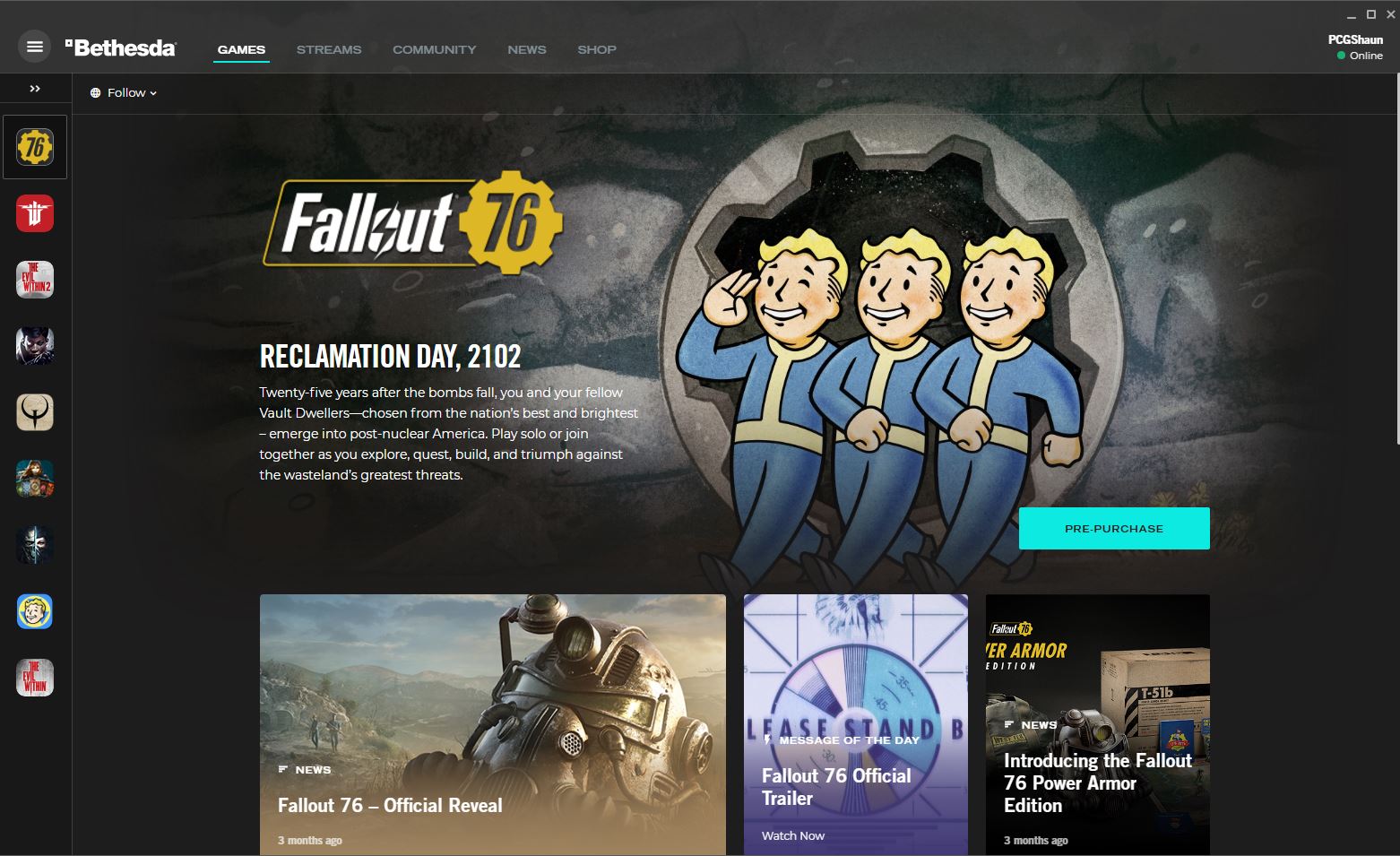
It’s been easy enough to ignore the existence of Bethesda’s launcher: while games like Elder Scrolls Legends have required bethesda.net accounts, it was possible to play them via Steam without the need for a separate client. But the honeymoon is over: Fallout 76 will require the launcher, and will be the only digital storefront selling the game.
It’s a barebones client—simply a desktop storefront for Bethesda games—but increasingly, the publisher’s answer to Battle.net. Even the “streams” menu option shuttles the user to a Twitch web browser page, likewise the “community” menu option. There’s no reason to recommend it, then, unless you’re definitely going to play Fallout 76 and, presumably, any other forthcoming online Bethesda games.
10. Windows Store
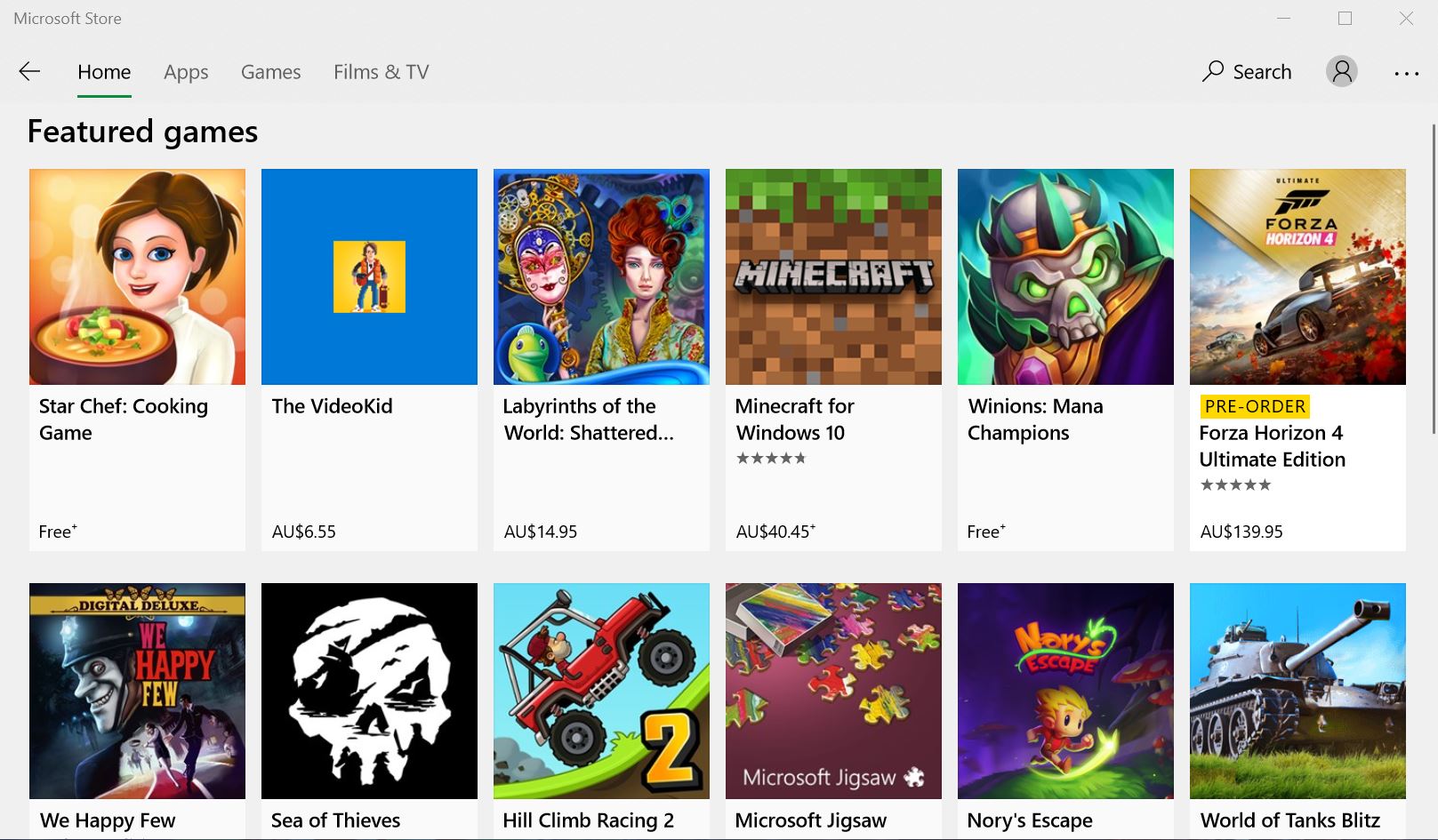
When it comes to gaming, the Windows Store is good for two things: playing Microsoft-published games, and as fodder for condescending jokes about Microsoft. The worst thing about Windows Store is that it’s oblivious to what kind of games enthusiast you are. A lengthy browse throws up a ton of cheap smartphone-esque games (Hidden City: Hidden Object Adventure! Candy Crush Soda Saga!), among which you’ll find scattered the odd flagship Microsoft-owned game like Minecraft, Gears of War, Halo and Forza. Stuff like Ark: Survival Evolved and We Happy Few are there—and other notable publishers including Warner Bros and Capcom are getting involved—but the storefront is definitely geared towards folks who put hundreds of hours into Minesweeper in the ‘90s. Nothing wrong with that, but I’d wager that most people are looking for one or the other, not both. You won’t be leisurely browsing the Windows Store, then. It’s a clunky affair with virtually no useful curation. One to avoid unless you’re into Forza.
Also, there is absolutely no need to use the Windows Store for games now that the Xbox app exists.

Shaun Prescott is the Australian editor of PC Gamer. With over ten years experience covering the games industry, his work has appeared on GamesRadar+, TechRadar, The Guardian, PLAY Magazine, the Sydney Morning Herald, and more. Specific interests include indie games, obscure Metroidvanias, speedrunning, experimental games and FPSs. He thinks Lulu by Metallica and Lou Reed is an all-time classic that will receive its due critical reappraisal one day.

